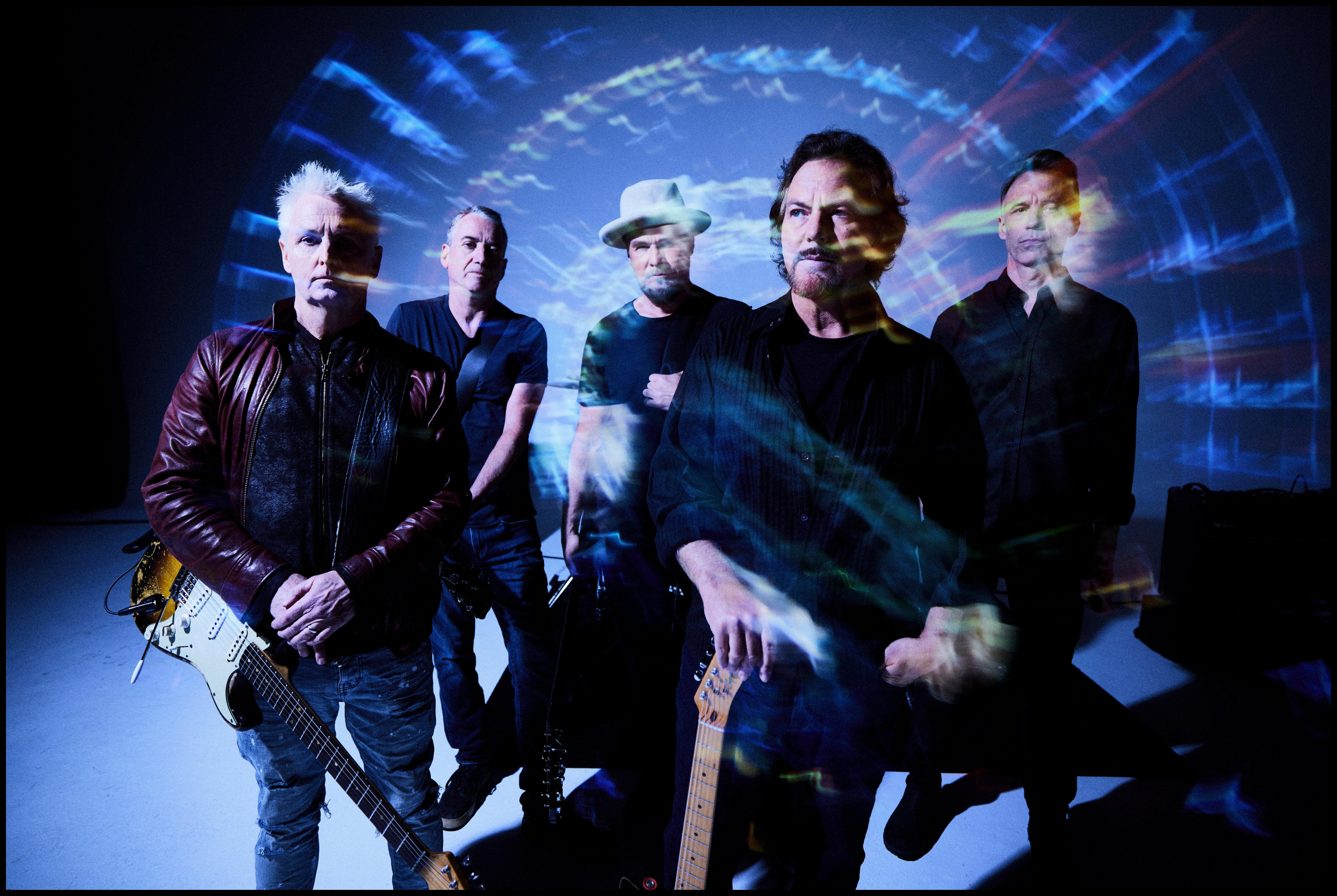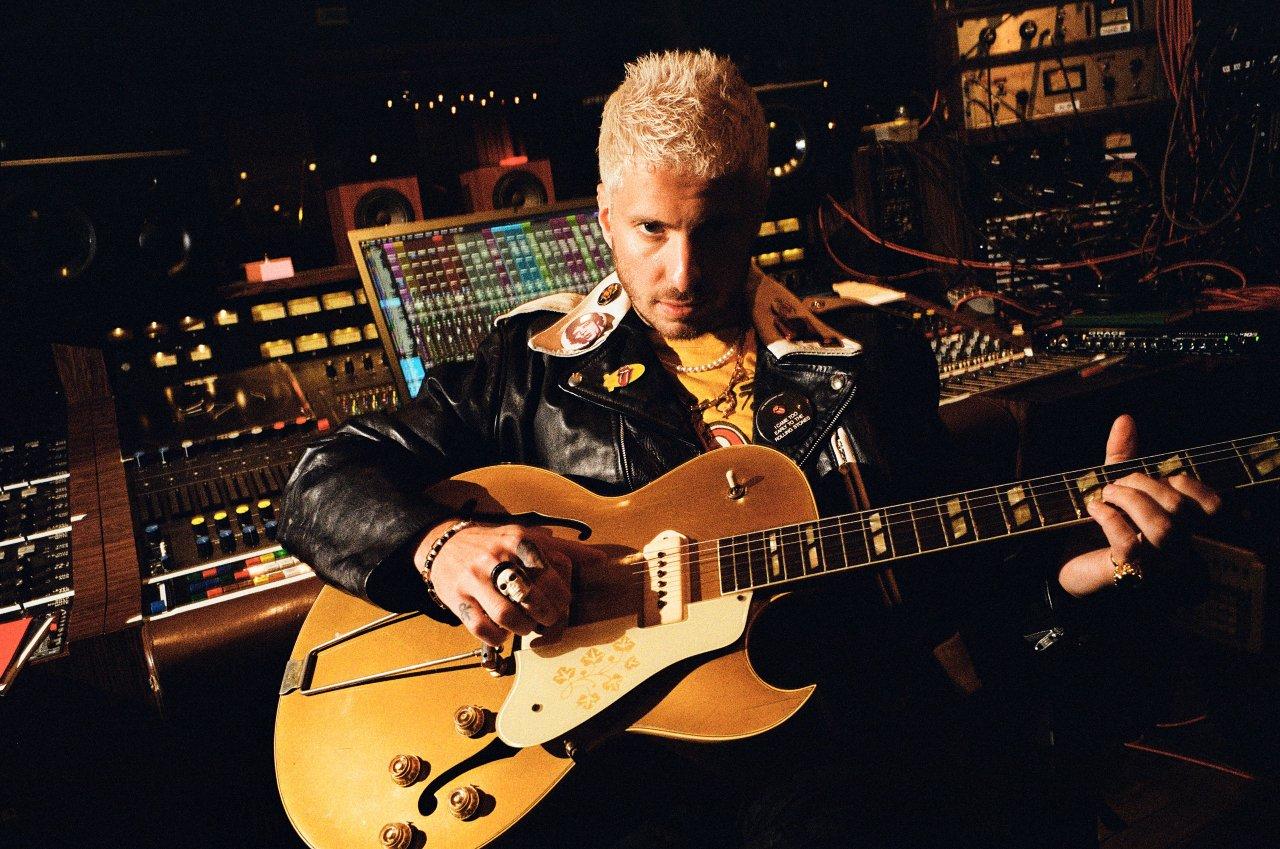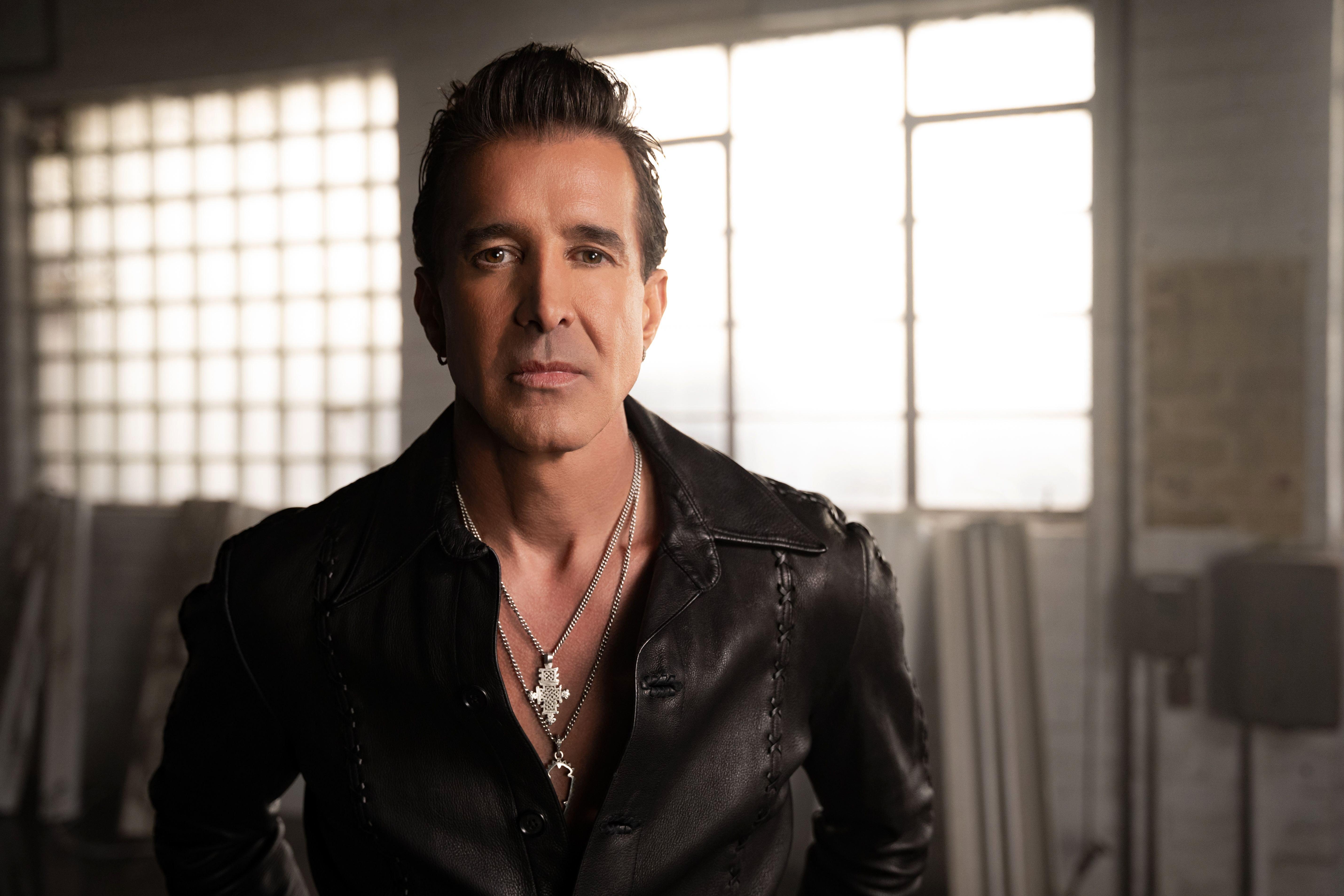Scott Stapp prefers Zoom with the camera off, but for a minute, he flips it on to say hello. The Creed frontman reveals himself to be alone on his tour bus, in near complete darkness, encased in a black hoodie.
"You look like a Jedi," his rep quips in an adjacent Zoom window. "They're training me," Stapp quips back.
Twenty-five years ago, this might be a breeding ground for his inner hellhounds, his unprocessed torments — as he sang, his own prison. But a sweatpants-clad Stapp looks relaxed, grounded, rooted; after this interview, he's eyeing a nap in the belly of this beast.
Stapp is a vocal proponent of recovery culture, and his language is permeated with it — God, squaring up with your ego, taking it one day at a time. "Some of us, we're so allergic to alcohol, so allergic to drugs," Stapp explains, "that when we use them, we break out in handcuffs and end up on the six o'clock news. And that's been my story, no doubt."
You can Google these stories; they're out there. While he's in no mood to recapitulate details to the press — who would be? — his new solo album, Higher Power, out March 15, directly addresses everything he's been through.
The title track begins with the line, "Forty feet down falling/ Headfirst off the edge" — and, well, that happened. (The rapper T.I. saved him, not knowing who he was at the time; Stapp later called him his "guardian angel.") By the chorus, Stapp frames what followed as a resurrection: "The day that I died was the day I came back to life."
At the zenith of Creed's career, Stapp pleaded "Can you take me higher?"; on Higher Power, this request seems to have been greenlighted. Which doesn't mean he has a messianic complex; Stapp doesn't project a shred of solipsism. He's just doing what he's meant to do.
"I don't pay attention to what's going on or try to follow trends, try to write to ride a wave or to catch something that's hot in the moment," he says.
What can he say? He's just Stapp — the same he's ever been, with a new album, a reunited Creed (who are about to head on tour) and a new lease on life.
This interview has been edited for clarity.
The song "Black Butterfly" is a great reminder that recovery isn't a one-and-done thing. It's a continuum, with peaks and valleys. Can you talk about that?
Well, it's absolutely a continuum and I think it not only applies to sobriety, but I think it applies to growth as a human being in general in every aspect of your life.
Just as we try to evolve…it is always five steps forward, three steps back. As long as you're continuing to move forward and learning from every setback, that's where true growth happens.
"Black Butterfly" represents so much, and I don't really want to get into the details of every aspect of what that song meant to me. Clearly, it involves a rebirth, but there's many contextual layers on that song in terms of the depths of the rebirth and what rebirths I'm talking about. But if we want to apply that to sobriety, there's definitely a continual process of cocooning and rebirthing.
Relapse has been a part of my story. It's not a part of everybody's, but it's been a part of mine. And each time that I have, I've definitely learned where a chink in my armor was that I was unaware of.
I also learned that I can't ever get overconfident. I can't ever think I've got it. I have to always stay on guard and continue to take it one day at a time and be vigilant. And then as time goes on, you get into a place where it becomes a lifestyle and a routine.
I'm glad you're on the good foot.
I just continue to grow, man, and take it one day at a time and know that God is doing a work in me in such a profound way, not only through my sobriety, but through my spiritual life.
One thing that you learn in recovery is the key to sobriety is the condition of you as a spiritual being. And for me to finally make that connection and tie it back to the roots of my faith — that really kind of put a bow and an icing on top of the cake, because everything started making sense.
I've always been interested in spirituality, but we live in a relentlessly anti-spirit world. How do you keep that antenna up when we're all deluged by the "make money and shut up" attitude?
It's a daily commitment to wake up and get into prayer — from my perspective as a Christian, getting in the word of God. Reading, surrounding myself with other like-minded people who do the same thing, as we edify and help each other grow in the spiritual walk that we have together.
When you embrace it and you make it a part of your lifestyle, surround yourself with people who have the same passion, drive, and heart in seeking that, then it creates the perfect storm for spiritual growth. And I'm fortunate to have that around me right now.
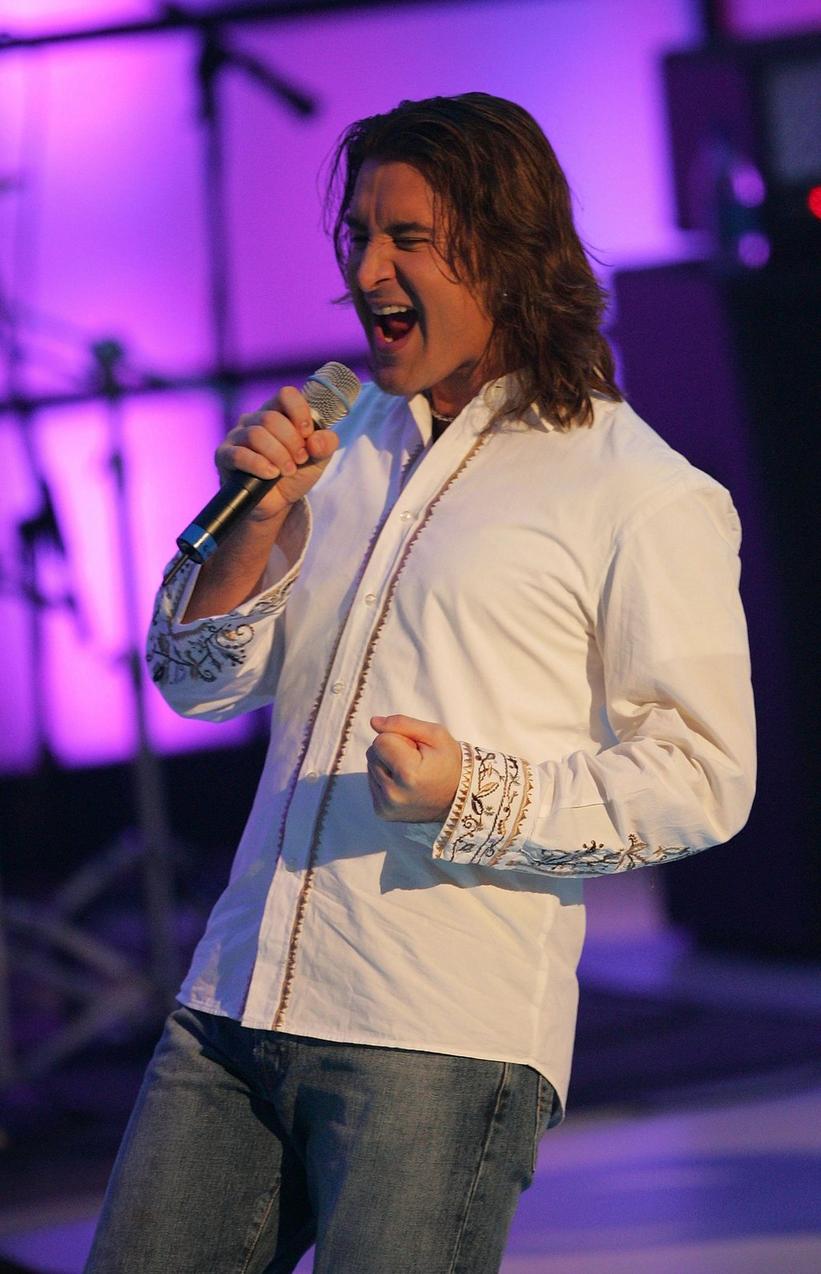
*Scott Stapp performing with Creed in 2003. Photo: Chris Trotman/Getty Images for NASCAR*
When Creed were on top of the world in the early 2000s, I'm sure your Christian ethics were completely at odds with everything going on around you.
Oh, 100 percent. And I also had this inflated, youthful ego; I thought I could handle it on my own, and didn't have any support around me. And you live and learn.
I help younger artists now who are going through similar situations and entering this business and let them know how important it is to surround yourself with support. And for those that don't have family, like I didn't, we really create a team.
Because this is a gift that we have — this career in music — and we can become so easily dismantled and it can be robbed from us by the trappings that come along from success and the temptations of the world. We're blessed with this opportunity to be creatives for a living. And so to nurture that, cherish it, protect it, look at it with professionalism and gratitude.
For those that don't have an issue with having a few drinks every now and then, do it on your off days. But when it's showtime and when it's a workday, look at it that way — with a vigor and passion of someone who's trying to be the best at what they do with their craft in their job.
That way, you can preserve it and it can be long-lasting, and you won't shoot yourself in the foot with self-sabotage.
Higher Power is such a production bulldozer. Can you talk about crafting the sound of it?
I was just creating those songs with my guys that I write with, in real time, as I was feeling inspired. I was trying to stay true to what I do, how I feel, and just continue to try to lyrically and sonically create cinematic pieces of art.
Fortunately, by the way that it was created, there was a theme and each song kind of bled into the other and were held together by a singular thread — which was the impact that God, my higher power has had in my life throughout the ups and the downs and was always there even at my darkest times.
And I think I addressed that in Higher Power. It's resounding with them in its sonic presentation and lyrical narrative.
You said you're looking to "create cinematic pieces of art." What role does the cinema play in your life? Do you think of great rock songs as being akin to mind movies?
No, I think I refer to that more in terms of how I'm creating the picture, not necessarily any reference points on any films. I'm trying to create something cinematic. I'm trying to create something that when it's heard, well, hopefully when someone connects, paint a picture in their mind of an experience and not only just connect with them on a personal level.
I think that's something I've always tried to do lyrically since I started writing songs. Since my first professional record in 1997, with My Own Prison, I think it's just been a part of the way that I create. And I think I really wanted to intentionally focus on that, in terms of the production and the music beds that went around the themes that I was talking about.
And I definitely think we did. I think my producers, Marti Frederiksen and Scott Stevens, captured that. I'm proud of what we did, and I feel that this is my best solo work to date.
And I've got a song I'm very proud of. It's a duet that I did with the Rock Queen herself, Dorothy, which will be out this Friday. And I'm very excited to share that song and everything that's coming with it because I think it's just a centerpiece of this record and a theme that really is what this album is: the walls talking.
The first line of "Higher Power" reflects a very traumatic event in your life; I don't need to recite it back to you. You're a very candid and honest cat.
I mean, if you go back to 1997 and you listen to "My Own Prison," that's probably one of the most personal and confessional songs I've ever written. That's the only way that I know how to write. That's the only way that the inspiration, the creativity comes out of me.
I bear my soul. I talk about my flaws, my weaknesses, my failures, the dark times. I just speak what's in my heart. I mean, I think that's probably a part of being a child with no filter. And that's kind of translated into how I write lyrics. I just say how it is and how I see it, how I'm observing it, how I'm experiencing it.
And call it what you will, but I call it my style. However you want to interpret that is cool. And I appreciate that you hear the vulnerability and the honesty in that because that's where it comes from.
I remember the early 2000s as a highly macho world — of raunchy comedies, shock jocks, getting called the f-slur on the playground. In the hard rock world of that time, I'm sure vulnerability was steamrolled over.
Well, I know that we came out with a song called "One Last Breath" in 2002, which was clearly a cry for help and vulnerability. So, I don't think I was paying too much attention to what was going on around me and what other people were doing. I never really have, I just do what I do.
And so it was kind of the antithesis of what you just described. You're talking about this macho era, and I'm writing lyrics, "Please come now, I think I'm falling/ I'm holding onto all I think is safe/ I think I found the road to nowhere, and I'm trying to escape."
I don't pay attention to what's going on or try to follow trends, try to write to ride a wave or to catch something that's hot in the moment. I really don't pay attention to the outside world.
That seems to be a throughline of your career.
To be honest with you, I'm a bit of a recluse. And when I was younger, I kind of romanticized that loner poet sitting under a tree, writing lyrics in a book, observing the world around him.
And I guess, looking back, that wasn't so much of a romantic approach, but more of just who I was and me trying to come to grips with it and accepting that that's who I am and being comfortable with it.
I think sobriety and clarity has helped me become comfortable with it — because I think that part of the reason I overindulged at times is because I never really felt comfortable around crowds. I never really felt comfortable around groups of people and socializing and mindless conversation and chit-chat. I think that's fine and that's great for other people, but it never really worked for me.
So, it's nice to be in a place in life all these years later, where you find your tribe and you find the people that speak your language, and are like-minded, and feel comfortable and safe there.
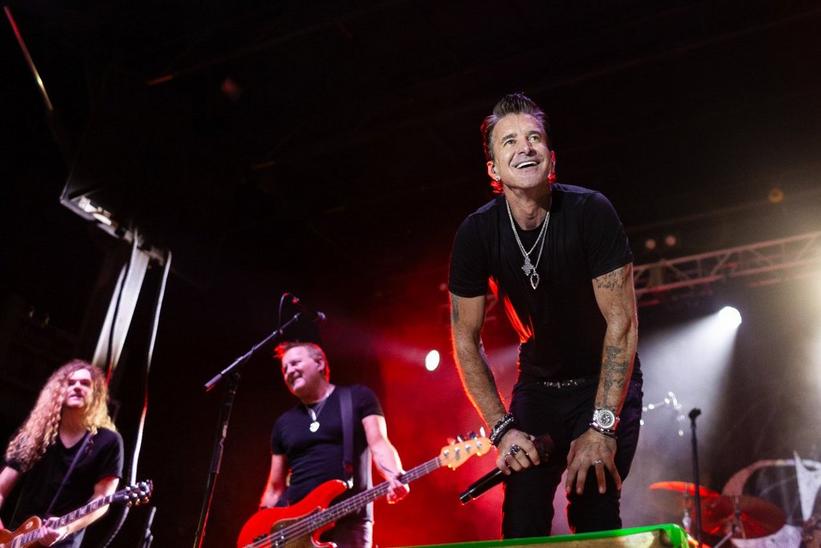
*Scott Stapp performing in 2023. Photo: Jerry Kingwell — Revelry Studios*
Back then, the mean-spirited humor about Creed couldn't have jibed with your psychological state. These days, you take it all in good fun, but back then, it must have been like poison.
You know, it didn't line up with what we were experiencing. It was a media narrative that was created. I can't look back and say that there were times where it didn't hurt and where I didn't understand. You've got stadiums on hold and you're selling out every arena in America, but then you're reading articles that you're this hated band, and it's just not lining up.
And we didn't have social media to talk back and correct things that were said. Not that I would even do that now, or waste my time.
I definitely feel that some of that did affect me in a negative way, and I didn't handle it appropriately. I would actually say that some of it probably caused some trauma, and the only way I knew how to do that was numb the pain.
We're in a different place now. We've got much thicker skin, and know what's important in life, and know whose opinions matter. But when you're young and that happens, it definitely has a profound impact on you. And I think was a big contributing factor — one of the reasons the band split up. I mean, there were others, but it was kind of a domino effect.
All in all, you seem to be in a really healthy and positive spot. Where do you want to go from here?
Right now, I'm in the moment. The album hasn't come out yet. I feel like we're at the very tip, tip, tip of the iceberg on this record. We've got the Creed stuff in between, and something tells me in my heart that this album's really going to be making continual impact all the way through 2025.
I'll be doing some solo touring and promotion in between the Creed stuff along the way, and then I look at 2025 as a continuation of the Higher Power tour and promotion.
Not to be clichéd, but I think the best is yet to come for this record, and we're at the beginning. So, I'm just taking it one day at a time, man.
The Salvation Of Chris Daughtry: How He Conquered Music-Biz Machinations & Fear Of Irrelevance For Triumphant New Album Dearly Beloved

